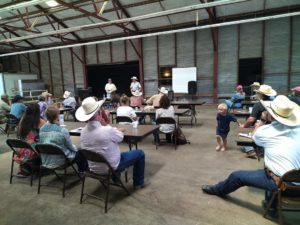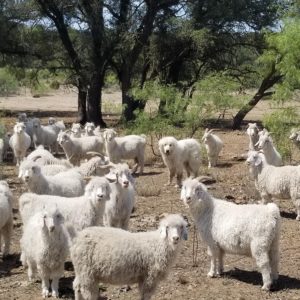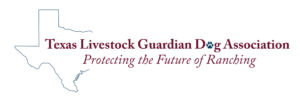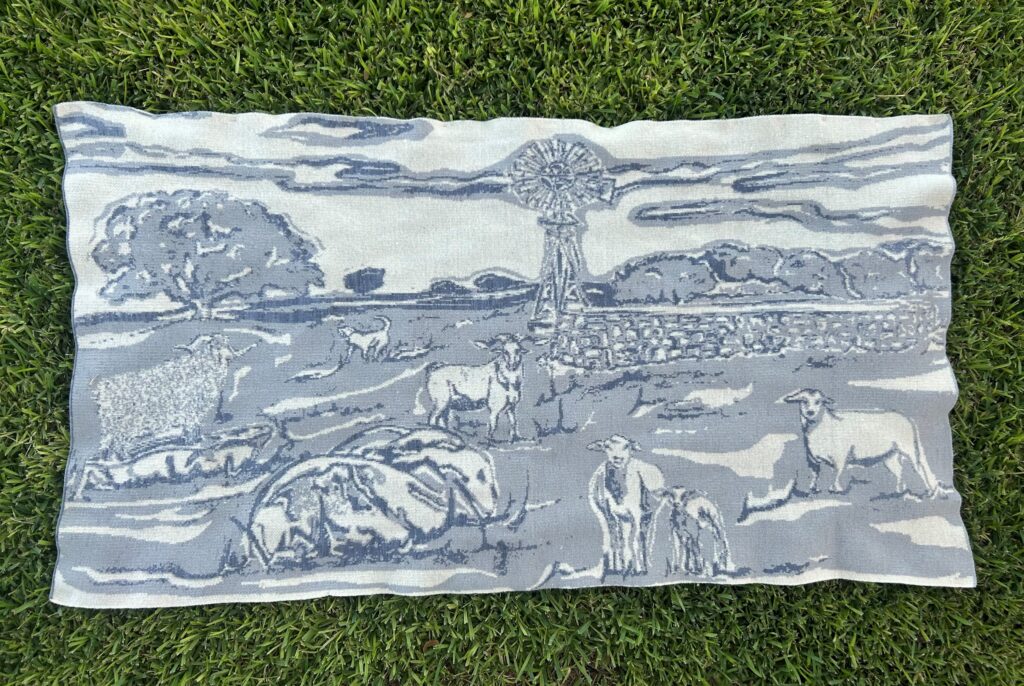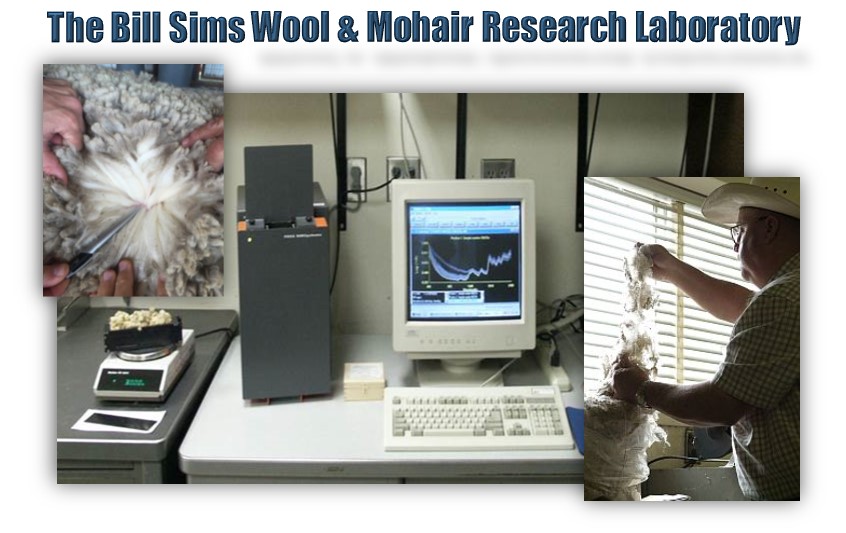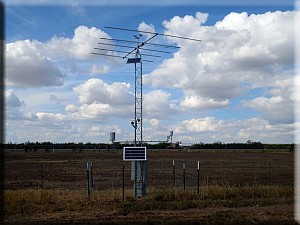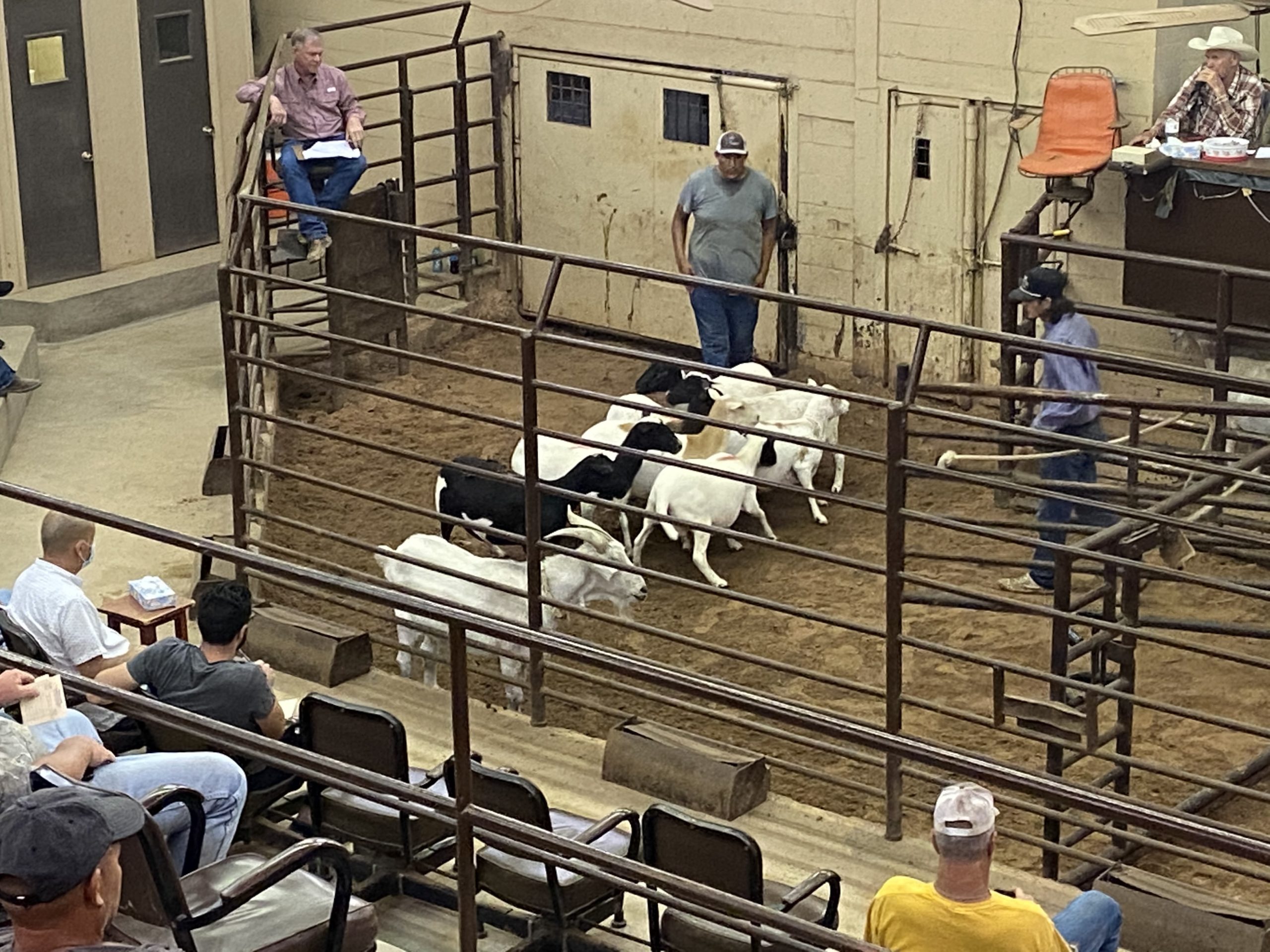Summer has arrived and I think we have had more days over 100 degrees already than all last year. While the drought hasn’t broken, several of the ranches we manage have received some rain bringing a little bit of optimism. We could still use a lot more rain (or optimism), however.
With hot conditions and wet weather, make sure to check your LGD’s neck for hot spots under their collars. They can lead to serious infection if not treated quickly. It’s also that time of the year that rattlesnakes are active. Make sure you vaccinate your LGDs in case they are bitten! It has helped our LGDs recover from bites in the past.
AgriLife Livestock Guardian Dog Program Events and Update
Our Spring 2022 LGD Field Day was held on May 13 in Crockett County at the 4-H Livestock Barn in Ozona. The day consisted of several workshops by AgriLife personnel, a producer panel, and a ranch tour. Capital Farm Credit sponsored a great lunch, and the Texas Farm Bureau sponsored the morning refreshments. Over 35 people attended the event that was sponsored by several local businesses in Ozona. We would like to thank the following generous sponsors of the event.
Gold Sponsors:
Capital Farm Credit
Koolin’ Klothz
Nestle Purina
Ozona National Bank
Sheep & Goat Predator Management Board
The Ozona Stockman
Triple C Hardware & Lumber
Silver Sponsors:
Cauthorn, Griffin, and Leonard Ranch Insurance
Lone Star Tracking
Texas Farm Bureau Insurance
Bonding vs. Socializing vs. Acclimating
At a recent event we overheard several producers talking about raising their LGD puppies. They were using the terms bonding, acclimating, and socializing interchangeably. Is there a difference in these terms when they are related to LGDs? Yes! We often hear producers share these terms when discussing how to raise young LGDs but often we have different definitions for each term. We thought it was time to try to clear up the meanings of these important terms.
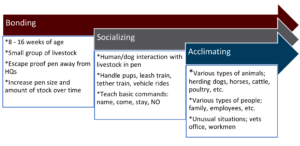 Bonding
Bonding
Bonding refers to the process of taking weaned puppies and placing them in a pen with livestock for
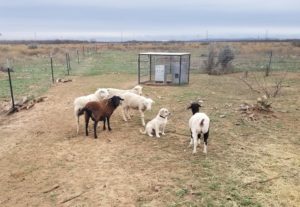
LGD Johnny, in a bonding pen at the AgriLife Center. (Texas A&M AgriLife photo courtesy Costanzo 2020)
several weeks to a few months to form an attachment to livestock that the dogs will guard as adults. The purpose of bonding is to create a strong connection to a certain specie or species of livestock while the puppy’s brain is still developing and forming attachments. It is important to bond your puppy with livestock as soon as possible, as the puppy’s brain development in that area drastically slows about 4 months of age. Bonding after that age may cause weaker attachments to form which may lead to dogs roaming away from their charges. Bonding pens should be escape proof and contain a safe space for your puppy should it be bullied by livestock. Our feeding stations double as a safe space for our puppies in the bonding pens.
Socializing
Socializing your puppy is an important process to perform during the bonding period. Socializing refers to teaching your puppy not to fear contact from humans. This is an important step in the bonding process as an adult LGD that cannot be caught can be a liability to producers. To socialize your LGD puppy, spend approximately 5 minutes, three times a week, petting, brushing, and gently rolling the puppy over on its back. Check the puppy’s ears, teeth, and paws during this time. You should also expose young dogs to leash training and riding in a vehicle or trailer. Some producers may also want to crate train their LGD during this time. Gradually start out with a couple minutes for each item and then increase the time as the puppy ages. This should give the puppy enough interaction to be socialized as an adult dog.
Acclimating
Acclimating on the other hand refers to the process of bringing in other animals such as herding dogs, horses, cattle, etc. for the puppy to become accustomed to seeing and working around. This is important to do while you are bonding your puppies to livestock so that the puppy learns that these other animals are not a danger to them or their charges. Acclimating your puppy can be done easily while your puppies are in the bonding pens. Simply bring the other animals into the bonding pen or your puppy out to visit the other animals so that it learns not to fear them. You should acclimate your pup to theses other animals and any other ranch personnel that may interact with them regularly during the bonding process.
LGDs & The Bonding Project Update
Round Four Pups
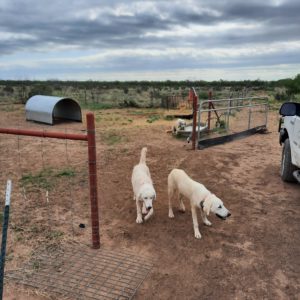
Reba, Marsha, and Betty were all happy to be released from their bonding pens in late May. Texas A&M AgriLife photo courtesy Costanzo 2022)
The pups were released from their bonding pens into larger pastures with additional livestock and other puppies in mid-May. The feeding trial comparing two different Purina Mills puppy chows was started when the pups were released. The pups and feed are weighed weekly to see how much the pup’s weight has increased and the amount of kibble that has been consumed. We will continue the feeding trial for 60 days. Make sure to check back for an update on the results of the study.
Adult Dogs
Sadly, we lost one of our adult LGDs from the Read Ranch in Ozona in May. Max, a Great Pyrenees X
Akbash, was 9 years old and had been at the ranch for many years guarding our Angora goats. Max never left his charges for any reason. He contracted Ehrlichiosis from a tick bite a few years ago. Recently he started losing weight again and then developed a severe inner ear infection which affected his ability to walk. We treated him with antibiotics, but the Ehrlichiosis had already done more damage to his body systems, and he stopped eating altogether. At that point our vet recommended that he be euthanized. The best defense against Ehrlichiosis is to prevent the infection by using an approved flea and tick medication. Not all products will prevent this disease. Make sure to check with your veterinarian for product that defends against this disease.
Doc and Thelma have been doing well using the invisible fence collars. Neither dog has left the two pastures they are being rotated between. Sadly, Thelma was diagnosed with Ehrlichiosis in late May and had to be kenneled for several weeks. She will be returned to the invisible fenced pastures as soon as she is done with her treatment of antibiotics. We are planning to release both dogs at the Martin Ranch in mid-June and track their movements to see if they leave the ranch boundaries again.
In closing
If you enjoyed this monthly LGD blog, please don’t forget to subscribe to it with this link The Guardian Way | Texas A&M AgriLife Research and Extension Center at San Angelo.
To provide feedback on this article or request topics for future articles, please contact me at bill.costanzo@ag.tamu.edu or 325-657-7311.
The Texas A&M AgriLife Livestock Guardian Dog Program is a cooperative effort by Texas A&M AgriLife Research and the Texas Sheep and Goat Predator Management Board. Make sure to follow us on our social media sites and share them with your friends and family!
Facebook: https://www.facebook.com/TAMUlivestockguarddog/
Instagram: @tamulivestockguarddog
YouTube: https://www.youtube.com/channel/UCF7YbP6bNDV7___6H8mifBA
Don’t forget to check out the Texas LGD Association on online! Follow the organization at https://www.facebook.com/TexasLGDAssociation or check out their website!

